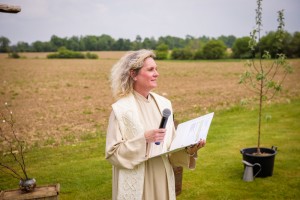Seasonal Affective Disorder (SAD) in BC’s Rainy Months
Since moving to British Columbia from Ontario, one of the differences I’ve noticed is the weather- which include long stretches of grey skies and steady rain. While the coastal climate has its own beauty, it also brings challenges, especially when it comes to mental health. Many people in BC experience a dip in mood during the fall and winter, a pattern commonly known as Seasonal Affective Disorder (SAD).
SAD is more than just “the winter blues.” It’s a type of depression linked to reduced sunlight exposure, which can affect sleep, energy, and overall well-being. Symptoms may include low mood, fatigue, difficulty concentrating, changes in appetite, and a sense of withdrawal from social life.
Studies show that approximately 2-3% of Canadians experience clinical Seasonal Affective Disorder (SAD), while another 15% report milder seasonal mood changes that still affect daily functioning (Here to Help BC, n.d.). In Toronto, a community-based study found a 2.9% lifetime prevalence of SAD using DSM criteria (Levitt et al., 2000). Broader data indicate that in British Columbia, about 4-5% of individuals experience a major depressive episode each year, underscoring the importance of accessible mental health support-especially during the darker, rainier months (Government of British Columbia, 2020).
If you’re living in BC, you may be especially vulnerable to SAD given our unique climate. The good news is that there are effective supports available. Counselling can provide strategies for coping with low energy and mood, while also offering space to explore how the darker months affect your relationships, work, and self-care. Light therapy, exercise, and building structured routines are also common tools.
As we head into the rainier season, it’s important to remember that you don’t have to go through it alone. If you’ve noticed your mood shift with the seasons, reaching out for counselling can be a valuable first step. With the right support, it’s possible to find more energy, calm, and connection-even on the greyest days.
I offer virtual counselling across British Columbia and would be glad to support you through the winter months.
References
Government of British Columbia. (2020). Mental health of British Columbians during COVID-19: Population survey results. https://www2.gov.bc.ca/gov/content/governments/about-the-bc-government/statistics-reports
Here to Help BC. (n.d.). Seasonal affective disorder (SAD). BC Partners for Mental Health and Substance Use Information. https://www.heretohelp.bc.ca/factsheet/seasonal-affective-disorder-sad
Levitt, A. J., Boyle, M. H., Joffe, R. T., & Baumal, Z. (2000). Estimated prevalence of the seasonal subtype of major depression in a Canadian community sample. Canadian Journal of Psychiatry, 45(7), 650-654. https://doi.org/10.1177/070674370004500706


